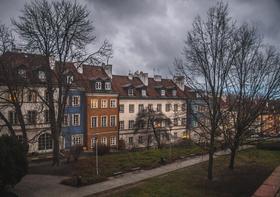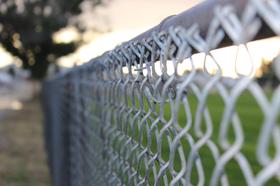For the 2025-26 school year, there are 2 public schools serving 116 students in Hydaburg City School District. This district's average testing ranking is 2/10, which is in the bottom 50% of public schools in Alaska.
51³Ô¹ÏÍøºÚÁÏ in Hydaburg City School District have an average math proficiency score of 10% (versus the Alaska public school average of 33%), and reading proficiency score of 10% (versus the 30% statewide average).
Minority enrollment is 71% of the student body (majority American Indian), which is more than the Alaska public school average of 53% (majority American Indian).
Overview
This School District
This State (AK)
# Schools
2 Schools
500 Schools
# Students
116 Students
130,460 Students
# Teachers
7 Teachers
7,187 Teachers
Student-Teacher Ratio
17:1
17:1
Student By Grade
District Rank
Hydaburg City School District, which is ranked within the bottom 50% of all 52 school districts in Alaska (based off of combined math and reading proficiency testing data) for the 2021-2022 school year.
The school district's graduation rate of 50% has decreased from PS% over five school years.
Overall District Rank
#42 out of 53 school districts
(Bottom 50%)
(Bottom 50%)
Math Test Scores (% Proficient)
(21-22)≤10%
23%
Reading/Language Arts Test Scores (% Proficient)
≤10%
29%
Science Test Scores (% Proficient)
≤20%
38%
Graduation Rate
(21-22)≥50%
78%
Students by Ethnicity:
Diversity Score
0.60
0.71
% American Indian
56%
22%
% Asian
3%
5%
% Hispanic
n/a
8%
% Black
n/a
2%
% White
29%
47%
% Hawaiian
9%
3%
% Two or more races
3%
13%
All Ethnic Groups
District Revenue and Spending
The revenue/student of $50,422 is higher than the state median of $20,163. The school district revenue/student has grown by 41% over four school years.
The school district's spending/student of $48,991 is higher than the state median of $21,240. The school district spending/student has grown by 41% over four school years.
Total Revenue
$6 MM
$2,630 MM
Spending
$6 MM
$2,771 MM
Revenue / Student
$50,422
$20,163
Spending / Student
$48,991
$21,240
Best Hydaburg City School District 51³Ô¹ÏÍøºÚÁÏ (2025-26)
School
(Math and Reading Proficiency)
(Math and Reading Proficiency)
Location
Quick Facts
Rank: #11.
Totem Correspondence School
(Math: <50% | Reading: <50% )
Rank:
Rank:
9/
Top 20%10
100 Totem Pole Ln
Hydaburg, AK 99922
(907) 285-3591
Hydaburg, AK 99922
(907) 285-3591
Gr: PK-12 | 43 students Student-teacher ratio: 43:1 Minority enrollment: 21%
Rank: #22.
Hydaburg School
(Math: ≤10% | Reading: ≤10%)
Rank:
Rank:
2/
Bottom 50%10
100 Totem Pole Ln
Hydaburg, AK 99922
(907) 285-3491
Hydaburg, AK 99922
(907) 285-3491
Gr: PK-12 | 73 students Student-teacher ratio: 12:1
Frequently Asked Questions
How many schools belong to Hydaburg City School District?
Hydaburg City School District manages 2 public schools serving 116 students.
What is the rank of Hydaburg City School District?
Hydaburg City School District is ranked #43 out of 52 school districts in Alaska (bottom 50%) based off of combined math and reading proficiency testing data for the 2021-2022 school year.
What is the racial composition of students in Hydaburg City School District?
56% of Hydaburg City School District students are American Indian, 29% of students are White, 9% of students are Hawaiian, 3% of students are Asian, and 3% of students are Two or more races.
What is the student/teacher ratio of Hydaburg City School District?
Hydaburg City School District has a student/teacher ratio of 17:1, which is lower than the Alaska state average of 18:1.
What is Hydaburg City School District's spending/student ratio?
The school district's spending/student of $48,991 is higher than the state median of $21,240. The school district spending/student has grown by 41% over four school years.
Recent Articles

School Choice vs. Neighborhood Schools: Key Factors
Explore school choice vs. neighborhood schools in 2025. Learn key factors parents should weigh when deciding the best fit for their child.

Best School Match 2025: Public vs Charter vs Magnet
Compare 2025 public, charter, and magnet school options with updated data, trends, and strategies to find the best fit.

Public School Boundaries and Equity in 2025
Explore how public school boundaries shape access, equity, and opportunity for students in 2025. Learn the impact on families and education policy.





